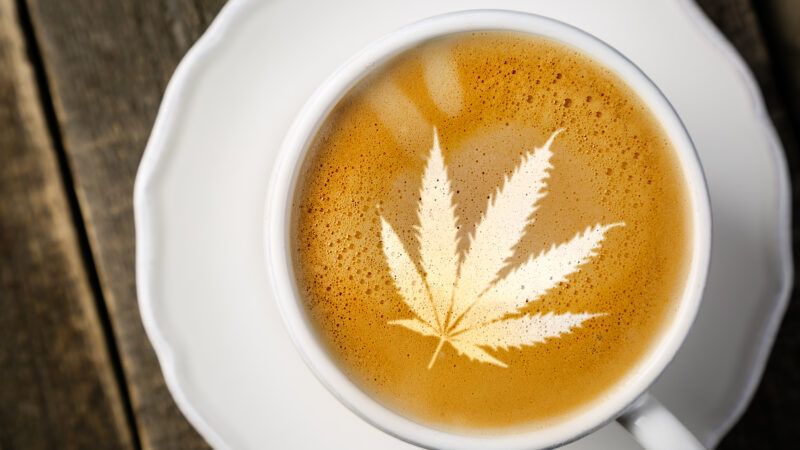New California Bill Proposes Legalizing Authentic Cannabis Cafes
Cannabis consumers should have the same commercial leisure spaces that alcohol drinkers do.

Last week, California State Assemblymember Matt Haney (D–San Francisco) introduced a bill that would allow licensed cannabis sellers in the state to also sell non-intoxicating foods and beverages to their adult customers, the San Francisco Chronicle reported this week.
The new bill, A.B. 374, would amend California law to allow licensees to sell freshly made foods that don't contain cannabis and beverages that don't contain alcohol. The bill would also allow sellers to host live musical performances and to sell tickets to same. The bill's passage would meet a growing need—and could result in a welcome proliferation of authentic cannabis cafes and similar businesses.
"Many people want to consume cannabis socially while having a sandwich or listening to music," Haney told the Chronicle. "We should allow that."
We should! Mostly, though, we don't.
In states such as California, where adults can legally buy cannabis, a common problem arises. Other than partaking inside one's home, legal spaces for cannabis consumption—third places—are limited or nonexistent. Commercial establishments where people may legally buy and eat food and buy and drink alcohol are ubiquitous—from bars and restaurants to sports stadiums to concert venues and more. But equivalent, Amsterdam-style spaces in which to enjoy cannabis with food are largely nonexistent.
California lets local governments establish conditions for licensed cannabis sellers to allow customers to consume cannabis and cannabis products on-site. Hence, as AB 374's subject matter suggests, a primary obstacle (though hardly the only one) to the spread of such businesses in California today isn't what they sell (pot)—it's what they can't sell (fresh food).
"Under California law, cannabis consumption lounges are not allowed to sell freshly prepared food to their patrons," High Times noted this week in a report on the new bill. "A rule change adopted in November 2022 allows lounges to offer prepackaged food and beverages and for customers to bring their own freshly prepared items on a limited basis, but the businesses themselves are denied the opportunity to serve [non-cannabis] products to their customers."
At least one ahead-of-the-curve city in California—West Hollywood—has reaped the benefits of allowing such food sales several years ago.
"Officials began making long-term plans to handle cannabis consumption lounges well before California's adult-use became legal in 2017, launching a permit process to have 10 dispensaries and 16 consumption lounges within the compact city of WeHo in short order," Eater L.A. reported last year.
That foresight resulted in the opening in 2019 of the Original Cannabis Café (nee Lowell Café), which Eater dubbed "the nation's first cannabis consumption lounge." The café saw long lines and huge demand, as Reason's Zach Weissmueller detailed after it opened.
But what customers saw at Lowell's—a single business allowing adults to smoke pot while enjoying tasty, freshly prepared food—was largely an illusion. Its opening required plenty of regulatory gymnastics—including creating separate, though outwardly seamless businesses—to get around the food and drink ban and comply with state law. Despite those difficulties, similar cafes in WeHo soon followed.
Passage of the new bill, though, would eliminate the food-and-drink barrier and ensure the further spread of cannabis cafes across California. It would also see California follow nationwide leader Colorado.
"A law that takes effect on Wednesday will allow cannabis consumption in specially licensed pot shops, restaurants, and other businesses, including mobile 'marijuana hospitality establishments' such as tour buses," Reason's Jacob Sullum explained in a 2019 piece on Colorado's first-in-the-nation commercial consumption law. "The law addresses a predicament that has long puzzled out-of-state visitors who stop by dispensaries in cities such as Denver and Pueblo, only to discover that there are virtually no places where they can legally consume the marijuana they have just legally bought."
The Colorado law has already helped launch a host of new businesses. That state recognized that instead of forcing cannabis users to smoke on city streets and in parks—which can promote complaints and conflict—fostering a culture of relaxed, enjoyable consumption of cannabis and food in spaces used for legal cannabis sales is good for consumers, businesses, and non-consumers alike. It's high time California and other states followed suit.

Show Comments (65)